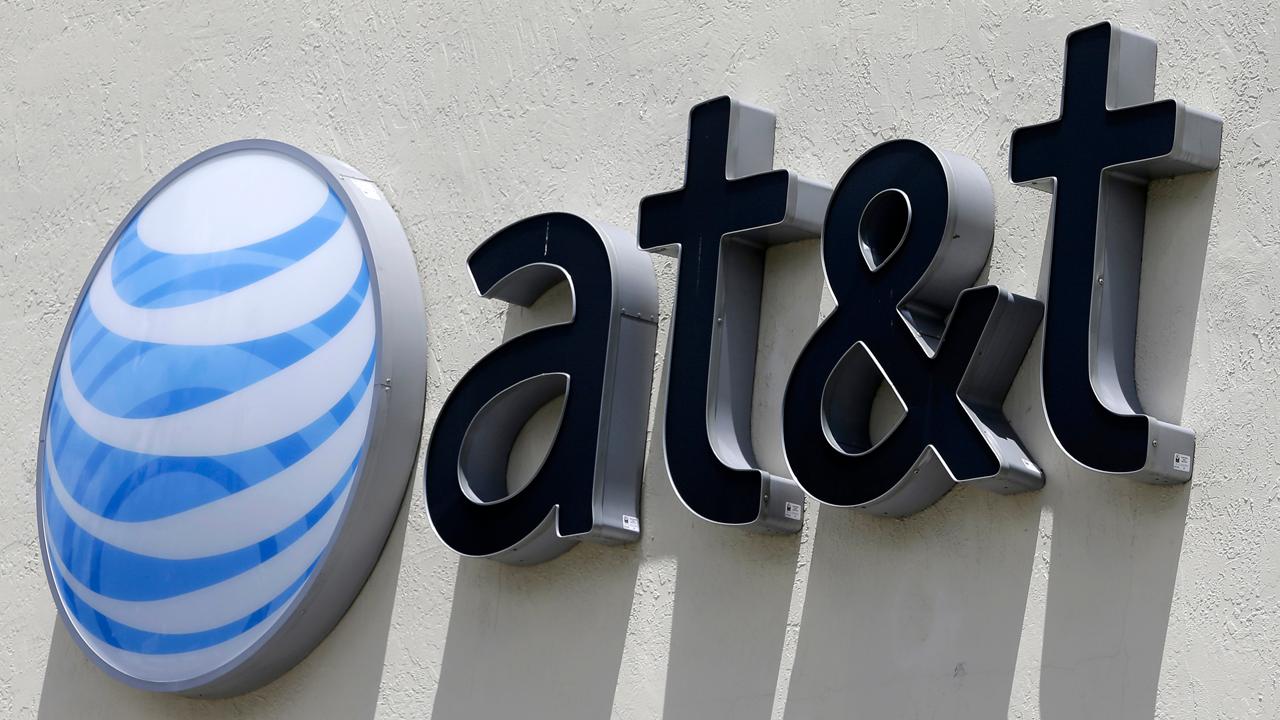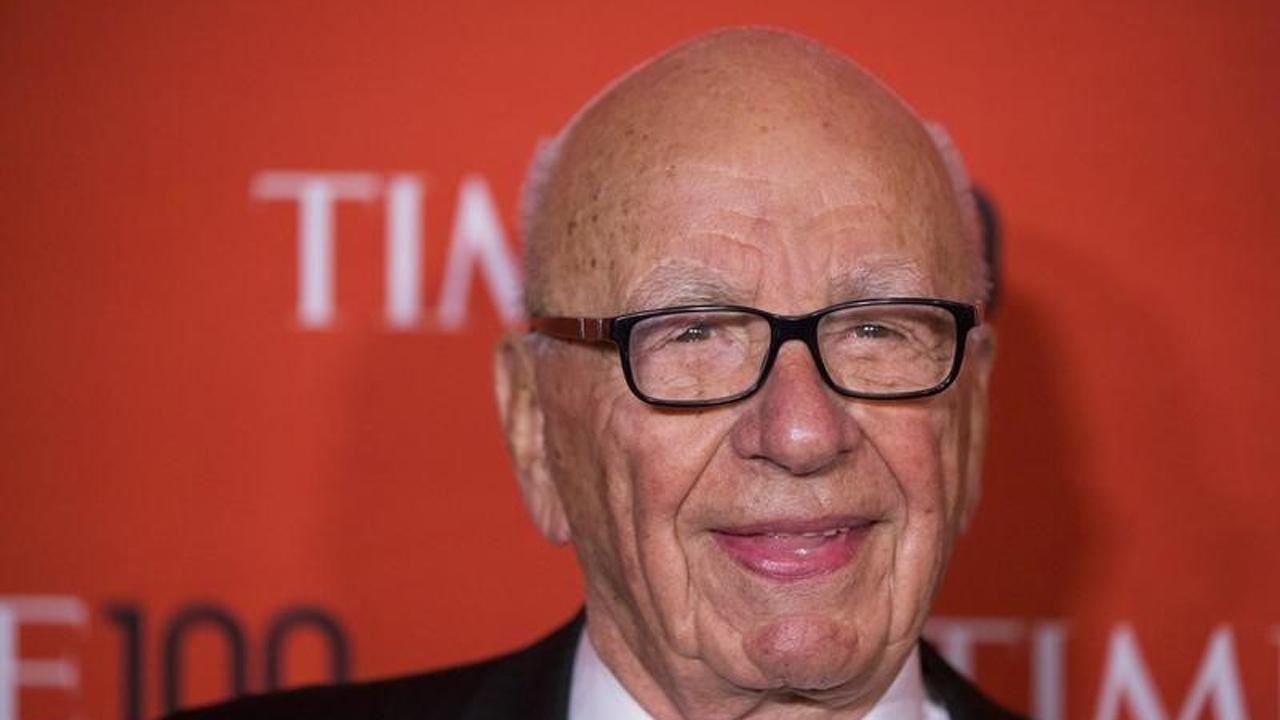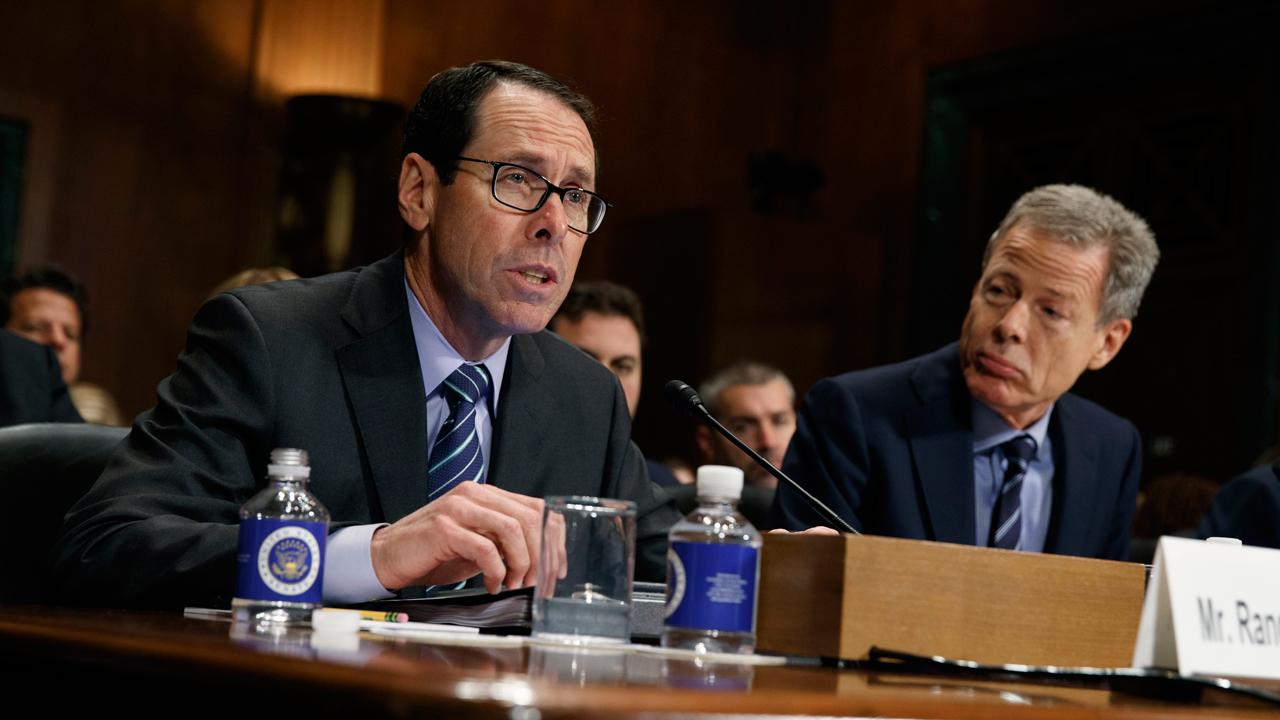AT&T-Time Warner: DOJ plans to call media rivals to testify against $85B deal
The Department of Justice is turning to some of the nation’s biggest media and telecommunications companies to aid in its effort to block AT&T’s (NYSE:T) $85 billion proposed takeover of Time Warner (NYSE:TWX), asking lawyers and officials from these outfits whether the companies’ executives would consider becoming government witnesses when the case goes to trial, FOX Business has learned.
The companies that have been contacted by the DOJ’s antitrust division include major media outlets such as Walt Disney (NYSE:DIS), the Dish Network(NASDAQ:DISH), Charter Communications (NASDAQ:CHTR), Cox Communications, Cable One (NYSE:CABO), Sony Corp. (NYSE:SNE), Verizon (NYSE:VZ) and Comcast (NASDAQ:CMCSA), according to a person with direct knowledge of the matter.
All the companies have been contacted by Justice Department lawyers, but it is unclear if they will make it on the final witness list. Other companies could still be added to the final list, people with knowledge of the matter say.
Another potential government witness is 21st Century Fox (NASDAQ:FOXA), the parent company of FOX Business and Fox News, according to this person.
While 21st Century is not on the government's preliminary witness list, DOJ antitrust officials have contacted Fox attorneys about providing a witness in the case against AT&T, according to people close to the matter. It is unclear if Fox will agree to the DOJ's request, these people add. Still, people close to the Justice Department say the government has received positive feedback from various companies that were asked to provide witnesses in the government's AT&T litigation.
And in an odd twist, the government believes Comcast could also be a key witness to block the AT&T deal even though it completed a similar transaction in 2011 by purchasing NBC Universal. People close to the Justice Department say Comcast has done a study of the impact of similar strategic combinations that the DOJ believes will show such mergers can hurt the consumer.
A spokesman for 21st Century Fox declined to comment on conversations with the Justice Department. Press officials for Disney, Charter, Cox, Dish, Cable One, Sony, Comcast and Verizon did not respond to FOX Business’ repeated phone calls and emails for comment. White House officials also did not return repeated calls for comment.
The Justice Department’s antitrust division, led by assistant attorney general Makan Delrahim, filed a 23-page complaint in federal district court on Nov. 20 arguing that AT&T’s purchase of Time Warner concentrates too much distribution reach and programming might in one company, thus violating federal antitrust laws.
AT&T, which owns satellite distributor DirecTV, would have every incentive to charge rival distributors more for Time Warner’s content, including lucrative premium channels like HBO and CNN, the government says. This in turn would give AT&T’s own distribution network a clear and unfair advantage that impedes competition and hurts consumers. But, AT&T is arguing that the combination will actually benefit consumers.
Given the rapidly changing media landscape, where content is omnipresent, AT&T will have no incentive to charge more for Time Warner’s content. In fact, it will need to distribute HBO and CNN as widely as possible.
Such “vertical mergers” that don’t combine similar properties aren’t anti-competitive, AT&T argues, because they don’t create monopolies that can squeeze consumers. HBO, for instance, competes with a wide variety of original programming, increasingly produced by tech giants such as Netflix (NASDAQ:NFLX) and Amazon (NASDAQ:AMZN), as does CNN, which faces competition from a broad array of cable news networks.
The trial date of the DOJ lawsuit has been set for March 19, but both sides have started intense pre-trial preparation. Delrahim, meanwhile, is plotting the government’s legal strategy, which includes calling a variety witnesses for the government, everyone from academics, to executives at big media companies and telecommunications outfits that the government believes will be put at a competitive disadvantage if AT&T is allowed to purchase Time Warner, according to people with direct knowledge of the matter. The government will also plans to call as witnesses officials from AT&T and Time Warner, these people add.
Press officials from both companies had no comment.
Both AT&T’s final witnesses and those for the government will likely be made public in the next couple of weeks, these people add. Still, the DOJ’s request to these media and telecom companies could create a particularly thorny issue for both the government and the companies themselves given the recent developments in the telecommunications and media business.
On Thursday, 21st Century Fox announced its proposed $52.5 billion sale of its entertainment assets to Disney – a deal that will be reviewed by the DOJ also on antitrust grounds. The remaining assets Fox News, FOX Business and Fox Sports will create a new company called Fox, 21st Century Fox chair Rupert Murdoch said during an interview with FOX Business on Thursday.
Other such deals may follow, leading to a public perception that media and telecom companies would be currying favor with the government to approve their deals in exchange for helping government quash the AT&T transaction.
As FOX Business first reported, government antitrust officials have already signaled that the DOJ’s opposition to the AT&T-Time Warner deal doesn’t negate the Fox-Disney sale. That was further evidenced on Thursday when President Trump personally congratulated Fox chair and CEO Rupert Murdoch on the proposed Disney sale.
Despite these issues, Rich Greenfield, an analyst at brokerage firm BTIG, said it’s not uncommon for rival media and telecom companies to oppose mergers like AT&T and Time Warner. He pointed to the opposition of many content providers such as Fox, Disney and Time Warner to Comcast’s proposed purchase of Time Warner’s cable operations.
That deal was scuttled in 2015 after the Obama administration’s antitrust division threatened a lawsuit to block the merger, similar to the Trump administration’s efforts to stop AT&T’s proposed purchase of Time Warner's content company, which broke from the cable business in 2009.
The Obama DOJ argued that Comcast’s “horizontal merger” with Time Warner Cable would combine similar cable distribution assets that could create a monopoly and hurt consumers by forcing content producers to pay more to distribute their networks through the newly combined cable business.
Still, Greenfield said while some media companies may agree to be government witnesses, the “optics” of such a move could make it difficult for either Disney or possibly 21st Century Fox at some point to publicly supporting the government since the Disney-Fox deal has just been announced and still needs government approval.
“It would be a surprise for Disney and Fox to go on the record in the midst of getting approval for their transaction,” Greenfield said.
One problem for Fox and Disney: Even as the government has signaled that it views their transaction favorably, Greenfield said an antitrust case on the deal could still be made, and that AT&T for example, could argue at trial that both firms are currying favor to get a pass from the government.
Greenfield said the anti-trust arguments against allowing the Fox sale to Disney involves the post-transaction concentration of assets at Disney, which is adding to its own entertainment franchise properties that are currently controlled by Fox. That includes some of Fox’s regional sports networks, which will be added to its ESPN franchise.
Since the government filed its lawsuit against AT&T's Time Warner purchase, legal experts have been divided over the merits of the DOJ's case. In opposing the AT&T-Time Warner purchase, the DOJ will also argue that the new company will hinder innovation, particularly new and developing content from the Internet, because Obama’s DOJ already allowed cable provider Comcast to purchase NBC Universal.
In its lawsuit, the DOJ argues that if AT&T is allowed to purchase Time Warner, nearly half of the customers who get their programming through cable, satellite or other cable-like systems — AT&T owns satellite distribution through DirectTV and even more distribution through a service called AT&T U-verse — will be receiving this content through only two companies: The newly beefed-up AT&T and Comcast.
Legal experts say the DOJ's argument about the concentration of distribution and content is a compelling one and could resonate with the judge in the case, Richard Leon. While on the federal bench, Leon displayed some skepticism over the Comcast-NBC deal and the conditions the government demanded for its approval.
But the DOJ’s case against AT&T and Time Warner is further complicated by an ongoing feud between President Trump and Time Warner’s cable news network, CNN, which has led to some analysts to speculate that the White House had an indirect influence on the lawsuit against AT&T because of the president’s distaste for the cable news network.
Last October, then-Republican presidential nominee Trump said at a rally in Gettysburg, Pennsylvania that if he were elected, his administration would not approve the merger “because it’s too much concentration of power in the hands of too few.” Throughout the campaign, and into his presidency, he attacked the network for what he believed was an unfair criticism of his policies and campaign style.
As first reported by FOX Business, administration officials have discussed a spin-off of CNN from Time Warner as a condition of the government approving the AT&T purchase -- a move AT&T chief Randall Stephenson says he wants to resist.
At times, the president has become so irate at what he views as CNN’s critical coverage that he’s told aides that CNN president Jeff Zucker should be fired, according to those with knowledge of the situation.
At trial, AT&T is likely to argue that Trump’s personal opinion of network, rather than established antitrust law, is behind the government’s lawsuit to kill the deal.






















